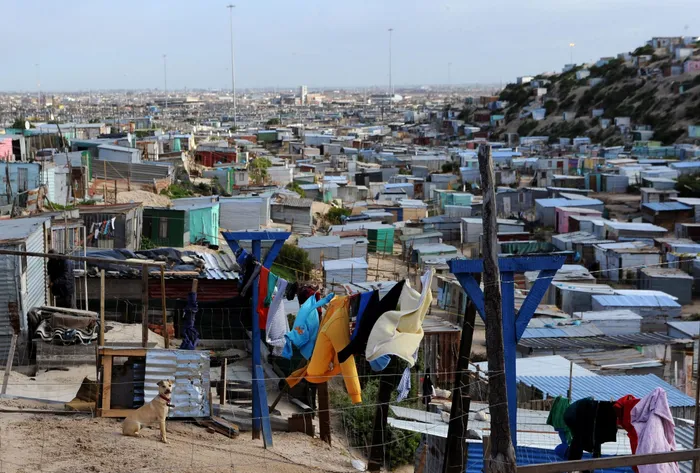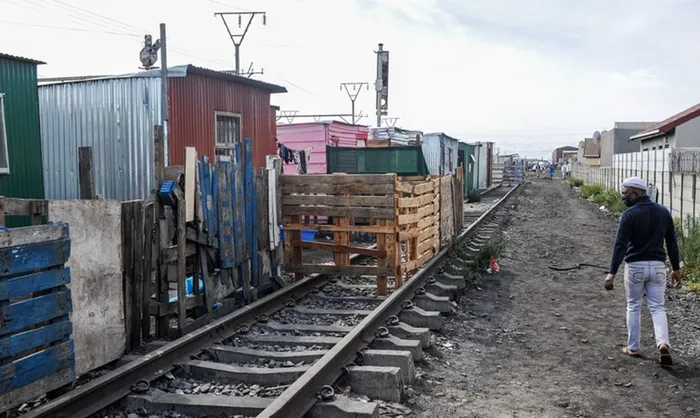Cape Town's informal settlements: a growing crisis in urban housing

The amount of Informal Settlements have increased due to Covid-19
Image: Tracey Adams/African News Agency(ANA)
The establishment of new informal settlements all over the country is continuing unabated, even after the surge during the Covid-19, with the one along the N1 highway towards the Cape Town CBD growing every day.
The City of Cape Town said they cannot act against these illegal occupiers because the land belongs to Transnet, while Transnet asked for more time to respond to questions on the ever growing sprawling settlement.
Cape Town is now home to 683 informal settlements, a number that has surged dramatically since the Covid-19 pandemic. This growth has been fuelled by job losses, mass evictions, and widespread unlawful occupations — many of which occurred while emergency regulations limited law enforcement intervention.
Mayco member for human settlements, Carl Pophaim said since Covid-19, 186 new informal settlements sprang up.
"Many were sparked by genuine need, but some were the result of political incitement and organised syndicates.”
These newly established settlements now account for over 60% of the highest-risk informal areas in the metro. Many are located in unsuitable and dangerous areas, such as beneath power lines, in wetlands, on flood plains, and even on biodiversity-protected land.
Currently, Cape Town has 278,044 informal structures spread across 849 areas, underscoring the sheer scale of the crisis. And the city is not alone.
The Department of Human Settlements data, South Africa has more than 4,000 informal settlements, with the largest concentrations in Cape Town, Johannesburg, and eThekwini.
Pophaim said the surge in informality reflects both a housing system under severe strain and the resilience of South Africa’s poorest communities.
“People innovate when systems fail them. But this is not sustainable,” Pophaim said. “We don’t have unlimited land, resources, or time.”
To address this, the City is rolling out its Managed Settlements Programme (MSP), which promotes incremental settlement development. The approach prioritises rapid access to secure land and basic services while creating a pathway for long-term housing upgrades through initiatives like the Upgrading of Informal Settlements Programme (UISP).
“This approach allows us to fast-track the process,” Pophaim said. “It’s not perfect, but it gives people stability, dignity, and a future. It also enables us to deliver essential services — from water and sanitation to electricity and waste collection.”
However, not all informal areas fall under the City’s jurisdiction.

shacks Prasa said they are still trying to get the occupants along the Central line to move their homes a bit back for repair work to begin.
Image: Henk Kruger/African News Agency (ANA)
The informal settlement located in Woodstock, opposite Paarden Island along the N1, is growing rapidly — but the land belongs to Transnet, not the municipality.
“We are in consultation with Transnet to resolve the unlawful occupation,” Pophaim confirmed, “but the situation highlights the legal and logistical complexities that arise when the City does not own the land.”
Informality is particularly concentrated in fast-growing settlements such as Covid-19 in Mfuleni and New Monwabisi Park 1 in Khayelitsha — areas where expansion has been largely unplanned and unbudgeted for.
“Informal settlements don’t come with budgets,” Pophaim said. “But they still require toilets, water, cleaning services — all of which cost money. And that’s money that ultimately comes from ratepayers.”
Over R3.4 billion has been earmarked for upgrading informal settlements over the current Medium-Term Revenue Expenditure Framework.
Pophaim noted that the City’s Human Settlements Directorate has already spent 99% of its current budget, demonstrating what he called “clear intent and delivery.”
Still, he remains candid about the challenges that lie ahead:
“There are simply not enough state resources to provide houses for everyone who needs one. Recognising that informality is a permanent feature of urban life helps us unlock more innovative and collaborative responses.”
“Urbanisation is inevitable. The real question is whether we respond with vision and courage — or allow it to spiral out of control.”
Meanwhile, challenges persist on PRASA-owned land, particularly along Cape Town’s Central Line corridor.
PRASA spokesperson Andiswa Makanda confirmed that illegal occupiers on the Central Line have not yet been permanently relocated. In the interim, the rail agency has requested households to shift a few metres away from the railway reserve, and has temporarily moved some households to nearby sites, pending final relocation.
“The relocation of affected households remains pending, subject to the completion of statutory requirements and the finalisation of land acquisition processes,” Makanda said.
The matter is currently being coordinated by the Project Management Committee of the Central Line Relocation & Recovery Project, an intergovernmental task team. A formal announcement will be made once significant progress has been achieved.
tracy-lynn.ruiters@inl.co.za
Weekend Argus
